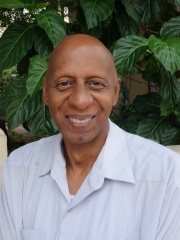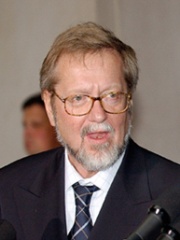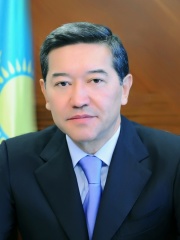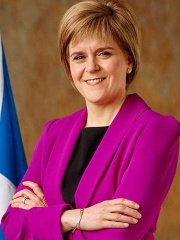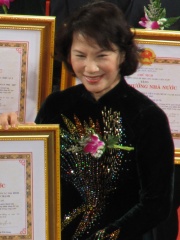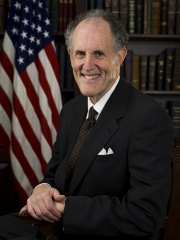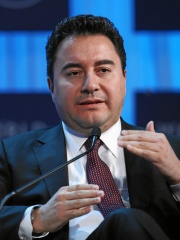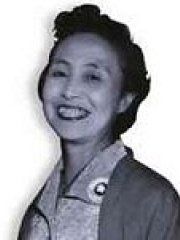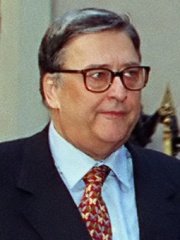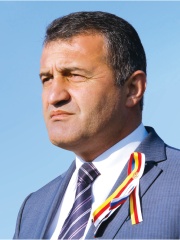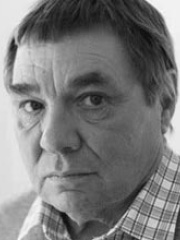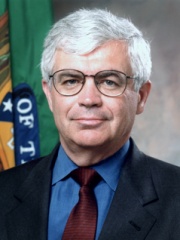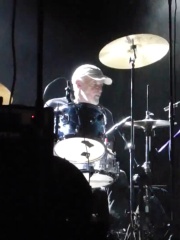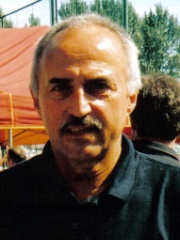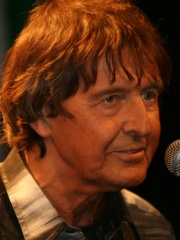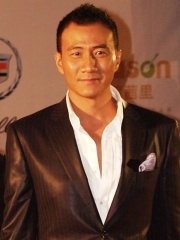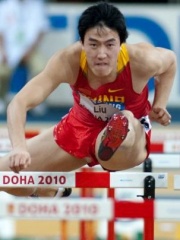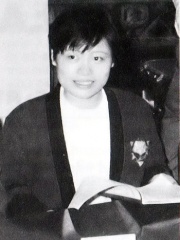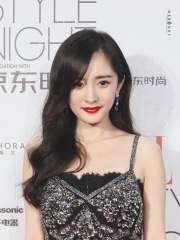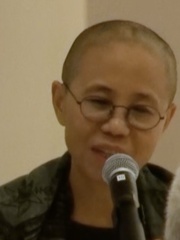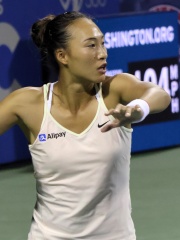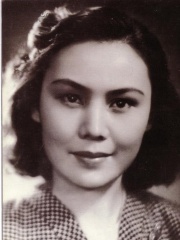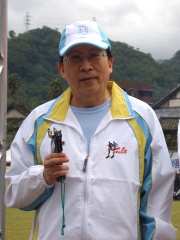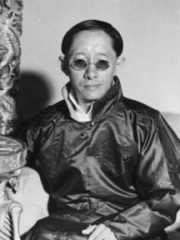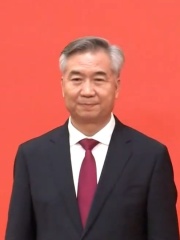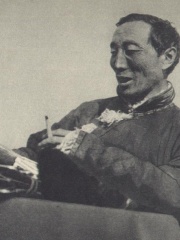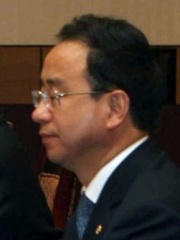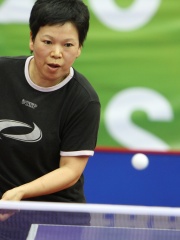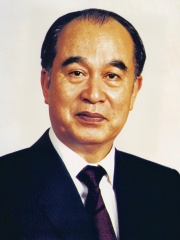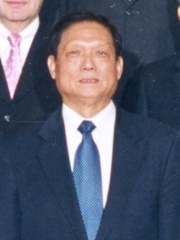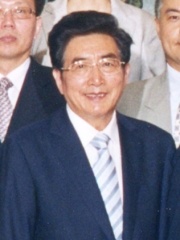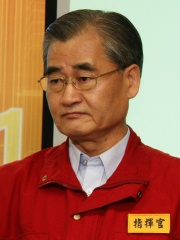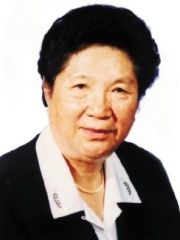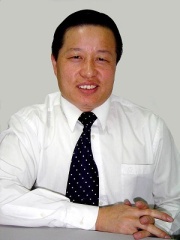Politician
Ma Kai
1946 - today
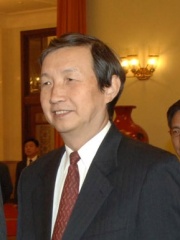
 Ma Kai
Ma Kai
Ma Kai (Chinese: 马凯; pinyin: Mǎ Kǎi) is a Chinese retired politician who served as a vice premier of China from 2013 to 2018. He was formerly the chairman of the National Development and Reform Commission from 2003 to 2008, and a State Councilor and secretary-general of the State Council from 2008 to 2013. Read more on Wikipedia
His biography is available in 16 different languages on Wikipedia. Ma Kai is the 17,020th most popular politician (down from 16,147th in 2024), the 1,003rd most popular biography from China (down from 985th in 2019) and the 464th most popular Chinese Politician.
Memorability Metrics
Page views of Ma Kai by language
Among Politicians
Among politicians, Ma Kai ranks 17,020 out of 19,576. Before him are Guillermo Fariñas, Per Stig Møller, Serik Akhmetov, Nicola Sturgeon, Nguyễn Thị Kim Ngân, and Elizaveta Mukasei. After him are Ted Kaufman, Ali Babacan, Shidzue Katō, Beniamino Andreatta, Mohammed Tawfiq Allawi, and Anatoly Bibilov.
Most Popular Politicians in Wikipedia
Go to all RankingsGuillermo Fariñas
1962 - Present
HPI: 51.84
Rank: 17,021
Per Stig Møller
1942 - Present
HPI: 51.84
Rank: 17,022
Serik Akhmetov
1958 - Present
HPI: 51.84
Rank: 17,023
Nicola Sturgeon
1970 - Present
HPI: 51.84
Rank: 17,024
Nguyễn Thị Kim Ngân
1954 - Present
HPI: 51.83
Rank: 17,025
Elizaveta Mukasei
1912 - 2009
HPI: 51.83
Rank: 17,026
Ma Kai
1946 - Present
HPI: 51.82
Rank: 17,027
Ted Kaufman
1939 - Present
HPI: 51.82
Rank: 17,028
Ali Babacan
1967 - Present
HPI: 51.82
Rank: 17,029
Shidzue Katō
1897 - 2001
HPI: 51.81
Rank: 17,030
Beniamino Andreatta
1928 - 2007
HPI: 51.81
Rank: 17,031
Mohammed Tawfiq Allawi
1954 - Present
HPI: 51.81
Rank: 17,032
Anatoly Bibilov
1970 - Present
HPI: 51.81
Rank: 17,033
Contemporaries
Among people born in 1946, Ma Kai ranks 709. Before him are Uroš Marović, John M. Lounge, Chris Burden, Stanisław Barańczak, Oscar Zubía, and John B. Taylor. After him are Kazuhiro Ninomiya, Bruce Bueno de Mesquita, Clive Bunker, Jan Domarski, Sverre Kjelsberg, and Bryan D. O'Connor.
Others Born in 1946
Go to all RankingsUroš Marović
ATHLETE
1946 - 2014
HPI: 52.06
Rank: 703
John M. Lounge
ASTRONAUT
1946 - 2011
HPI: 52.05
Rank: 704
Chris Burden
SCULPTOR
1946 - 2015
HPI: 52.01
Rank: 705
Stanisław Barańczak
WRITER
1946 - 2014
HPI: 51.90
Rank: 706
Oscar Zubía
SOCCER PLAYER
1946 - Present
HPI: 51.87
Rank: 707
John B. Taylor
ECONOMIST
1946 - Present
HPI: 51.84
Rank: 708
Ma Kai
POLITICIAN
1946 - Present
HPI: 51.82
Rank: 709
Kazuhiro Ninomiya
MARTIAL ARTS
1946 - Present
HPI: 51.80
Rank: 710
Bruce Bueno de Mesquita
POLITICIAN
1946 - Present
HPI: 51.78
Rank: 711
Clive Bunker
MUSICIAN
1946 - Present
HPI: 51.76
Rank: 712
Jan Domarski
SOCCER PLAYER
1946 - Present
HPI: 51.66
Rank: 713
Sverre Kjelsberg
MUSICIAN
1946 - 2016
HPI: 51.59
Rank: 714
Bryan D. O'Connor
ASTRONAUT
1946 - Present
HPI: 51.59
Rank: 715
In China
Among people born in China, Ma Kai ranks 1,003 out of 1,610. Before him are Wang Junxia (1973), Hu Jun (1968), Liu Xiang (1983), Xie Jun (1970), Qigang Chen (1951), and Yu Wenxia (1989). After him are Angelababy (1989), Yang Mi (1986), Liu Xia (1961), Sun Wen (1973), Zheng Qinwen (2002), and Bai Yang (1920).
Others born in China
Go to all RankingsWang Junxia
ATHLETE
1973 - Present
HPI: 52.03
Rank: 997
Hu Jun
ACTOR
1968 - Present
HPI: 52.00
Rank: 998
Liu Xiang
ATHLETE
1983 - Present
HPI: 51.97
Rank: 999
Xie Jun
CHESS PLAYER
1970 - Present
HPI: 51.96
Rank: 1,000
Qigang Chen
COMPOSER
1951 - Present
HPI: 51.91
Rank: 1,001
Yu Wenxia
CELEBRITY
1989 - Present
HPI: 51.91
Rank: 1,002
Ma Kai
POLITICIAN
1946 - Present
HPI: 51.82
Rank: 1,003
Angelababy
ACTOR
1989 - Present
HPI: 51.78
Rank: 1,004
Yang Mi
ACTOR
1986 - Present
HPI: 51.73
Rank: 1,005
Liu Xia
WRITER
1961 - Present
HPI: 51.73
Rank: 1,006
Sun Wen
SOCCER PLAYER
1973 - Present
HPI: 51.67
Rank: 1,007
Zheng Qinwen
TENNIS PLAYER
2002 - Present
HPI: 51.64
Rank: 1,008
Bai Yang
ACTOR
1920 - 1996
HPI: 51.61
Rank: 1,009
Among Politicians In China
Among politicians born in China, Ma Kai ranks 464. Before him are Liu Chao-shiuan (1943), Tashi Namgyal (1893), Li Xi (1956), Donduk Kuular (1888), Ling Jihua (1956), and Ni Xialian (1963). After him are Lee Yuan-tsu (1923), Liu Qi (1942), Guo Jinlong (1947), Mao Chi-kuo (1948), Chen Muhua (1921), and Gao Zhisheng (1964).
Liu Chao-shiuan
1943 - Present
HPI: 54.02
Rank: 458
Tashi Namgyal
1893 - 1963
HPI: 53.72
Rank: 459
Li Xi
1956 - Present
HPI: 53.36
Rank: 460
Donduk Kuular
1888 - 1932
HPI: 53.23
Rank: 461
Ling Jihua
1956 - Present
HPI: 52.71
Rank: 462
Ni Xialian
1963 - Present
HPI: 52.42
Rank: 463
Ma Kai
1946 - Present
HPI: 51.82
Rank: 464
Lee Yuan-tsu
1923 - 2017
HPI: 51.59
Rank: 465
Liu Qi
1942 - Present
HPI: 51.37
Rank: 466
Guo Jinlong
1947 - Present
HPI: 51.26
Rank: 467
Mao Chi-kuo
1948 - Present
HPI: 50.95
Rank: 468
Chen Muhua
1921 - 2011
HPI: 50.70
Rank: 469
Gao Zhisheng
1964 - Present
HPI: 50.23
Rank: 470
